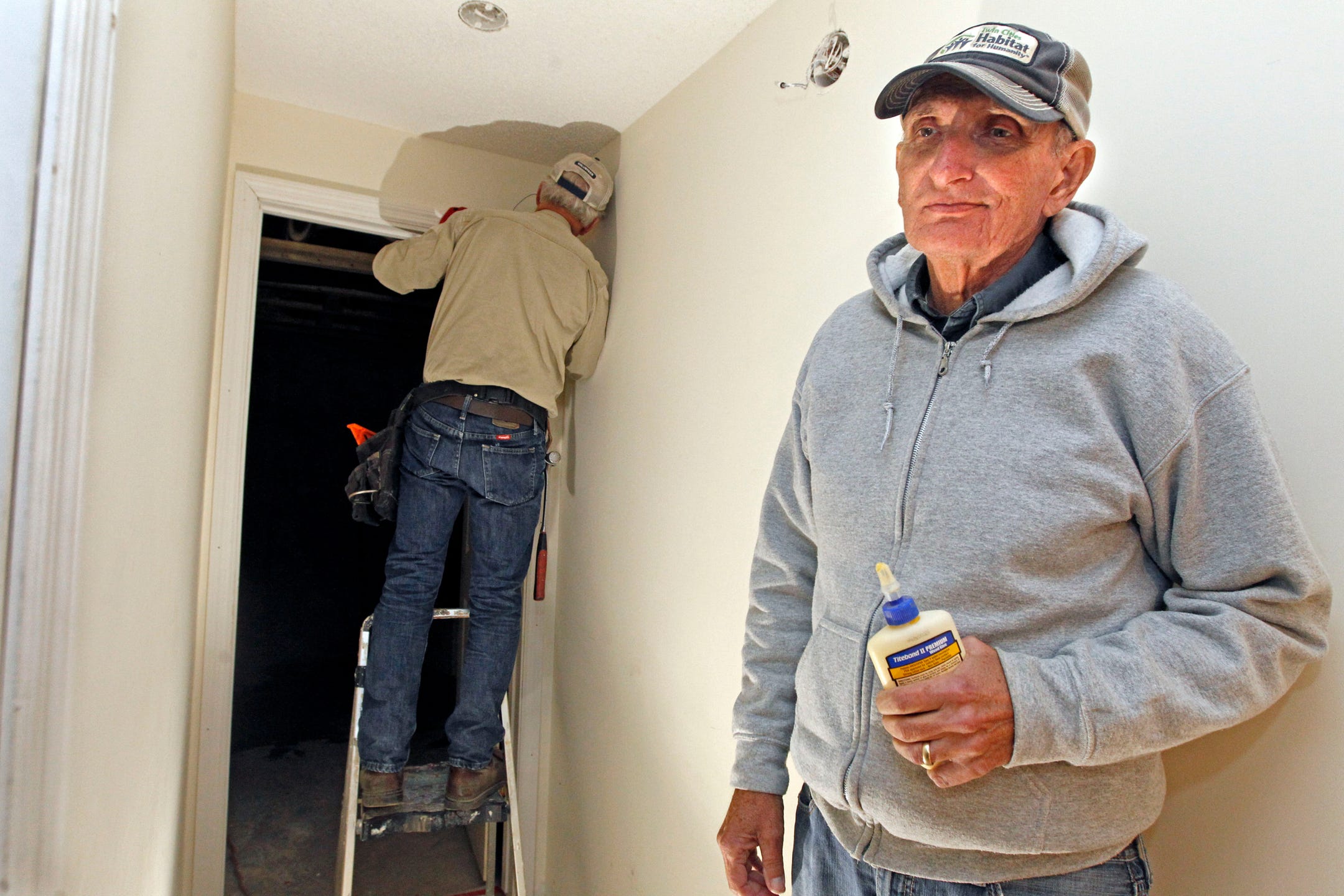
SAINT PAUL, Minn. – A crew of about 30 people spend the afternoon painting walls, putting in floors, hanging doors and installing plumbing at several side-by-side homes.
There is a clanging, pounding, efficient hum to the scene, everyone working on their own project, yet in concert with the others.
The workers are a mix of volunteers new and old, and future homeowners putting in their required "sweat equity" for the Twin Cities Habitat for Humanity program — one of the largest homeownership programs in the country.
An older volunteer takes frequent breaks to catch his breath. He sits on a windowsill ledge, takes off his blue and white Habitat for Humanity hat and wipes his brow.
“You know I used to go all day, but my body won’t let me do it anymore,” Bob Bleckinger said. “But if I have to take a break or two, I will.”
In October, Bleckinger marked his 17th year volunteering for Twin Cities Habitat.
“My wife doesn’t want me here because she thinks I’m going to collapse, but as long as I feel good, I’m going to be here,” he said. “This is my life.”
Bleckinger, 73, has pancreatic cancer, a disease with one of the worst survival rates. Patients typically have a 9% chance of living five years after being diagnosed because most symptoms don’t show up until the cancer is at stage 3 or 4.
A few of the volunteers have no idea Bleckinger is fighting the battle of a lifetime; he prefers it that way.
Chris Coleman, president and CEO of the Twin Cities Habitat program, said committed volunteers such as Bleckinger are the lifeblood of the organization.
“We could not do what we do without the thousands of volunteers each and every year,” he said. “It wouldn’t work.”
Bleckinger started volunteering because he liked building things and felt he owed it to others to help.
“It’s honest work. You put in some time, you walk away and you say, ‘We did this today,’” said Bleckinger, who retired as an engineer from 3M in 2002. After working years in management positions, there were days he wondered whether he truly made a difference. Habitat is different, he said, because he knows how much a new home will mean to a family.
“It changes their lives," he said. "I especially like to think of their kids growing up in a safer environment, maybe a better school."
Bleckinger, who drives his prized pewter Corvette to work sites, said he tries not to think about his cancer.
He went to the doctor just over a year ago after he started having some discomfort in his back. His doctor discovered the cancer after several tests. He underwent surgery, chemotherapy and radiation.
“We thought we beat it. I had three clean scans top to bottom,” he said. “But it came back. I’m not one of the lucky ones."
He paused and thought about his words.
“But as long as I can do things I really enjoy doing and I feel good, I’m happy,” he said. “So it’s a good day."